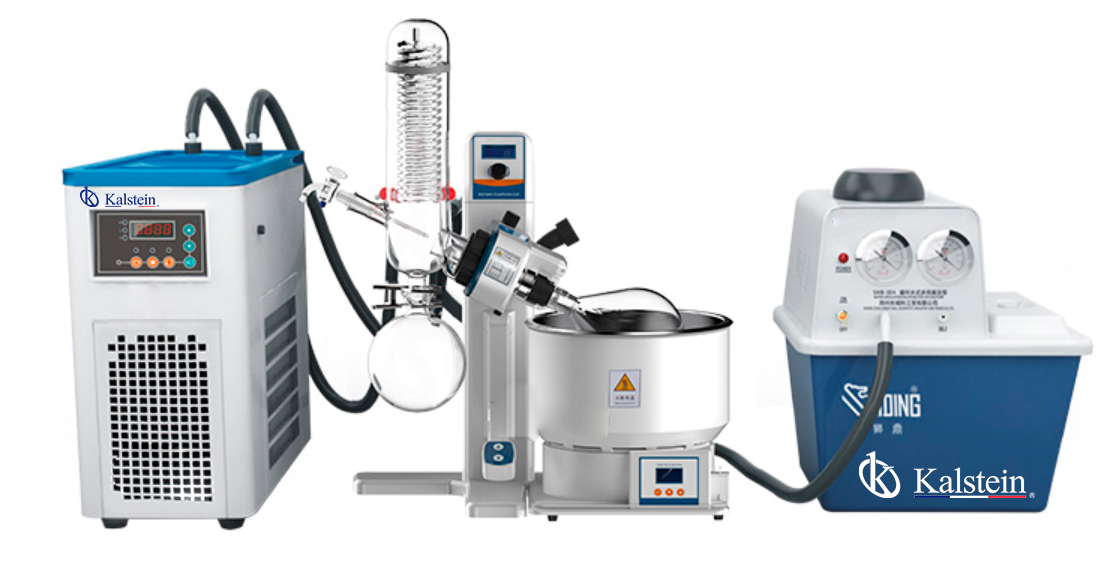In the scientific laboratory overview, the devices that dominate the scene are both illustrative of the scope of science and essential for discovering links to the wide world of chemistry. A faithful exponent of this class of devices is the rotary evaporator.
Also known as a rotary evaporator, it is a preeminent machine used for the gentle and efficient evaporation of solvents. An inescapable guest in chemistry laboratories, this star tool performs its magic by reducing the pressure on a sample to lower its boiling point. By reducing the pressure, the solvent is allowed to be removed at a lower temperature, thus minimizing damage to the heat-sensitive product.
Rotary evaporator applications
The rotary evaporator has been integrated into a plethora of procedures and experiments within the modern scientific landscape due to its unique ability to evaporate solvents gently and efficiently.
The primary use of this equipment is in the purification of heat-sensitive products, such as organic compounds. Chemicals often must be purified by distillation after a chemical reaction. However, these compounds can degrade at high temperatures. This is where a rotary evaporator shines, as it allows distillation at lower temperatures.
In addition, rotary evaporators are used in sample preparation for downstream analysis, such as analysis by mass spectroscopy and high-performance liquid chromatography. They allow efficient removal of solvent from the sample, preparing it adequately for these analyses.
Practical uses of rotary evaporators in chemistry laboratories
The versatility and efficiency of rotary evaporators has earned them a place in almost all types of chemistry laboratories, including academic, pharmaceutical, and food research.
In the pharmaceutical industry, rotary evaporators are used in the synthesis of drugs and medicines. They allow pure products to be obtained without the degradation that can result from high-temperature distillation.
Also, in academic research laboratories, rotary evaporators are essential in chemistry teaching and research. They are used to teach students about the principles of distillation and evaporation, and in research for the synthesis and purification of chemical compounds.
In the food industry, rotary evaporators are used to remove solvents from foods efficiently without altering their taste and texture. This use is especially important in the creation of food extracts and concentrates.
What we offer you at Kalstein
Science has at its service wonderful machines like the rotary evaporator to continue its tireless quest for knowledge. Their role in chemistry laboratories is invaluable, providing an efficient and gentle way to purify compounds and prepare samples for analysis. Whatever the laboratory environment, we look forward to seeing more innovations and applications of this incredible piece of technology in the years to come. HERE
If you wish to purchase a laboratory rotary evaporator do not hesitate to contact us, our expert advisors are trained to answer all your questions, visit our catalog HERE, you will find everything that suits you and your requirements at the best price.


